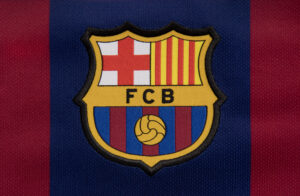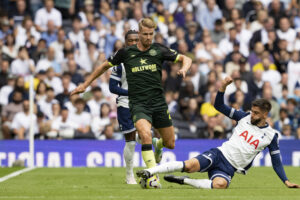A perfect World Cup knits together a population with hope, support and belief. The players are representing their country, who are supported by the fans and the whole population. However, this tournament is revealing division lines that occur after the failure of the expectations of a fickle supporter base. Instead, the players are under attack.
World Cup Backlash: Disgruntlement and Discrimination
Mesut Özil
Mesut Özil has retired from international football following the World Cup. This has little to do with his or Germany’s performance itself. Instead, it is sadly related to ancestry and nationhood. He announced his retirement after abuse and discrimination pertaining to his Turkish blood. This stemmed from Özil taking a photo with Turkish President Recep Tayyip Erdogan. Naturally, this sparked some outrage since this man was involved in a failed coup. Özil’s choice to take a photo with the president was not a political one, though. Instead, he explains that he was taking a photo with the head of the country of his family.
Following this incident, Özil was mistreated by officials, policemen and the public alike. He claimed that when Germany win “I am German”, but when they lose he is an “immigrant”. This shows the fickle nature of fans, who quickly shun or embrace players based on results. The darker revelation is that racism persists in the highest levels of football.
Neymar
When comparing to the likes of Özil, the criticism of Neymar during and after the World Cup is lighter. Brazil, as a nation, still embraces him as a top player. In fact, most people around the world still do. However, he has somewhat diminished his reputation after his theatrical playing style. His over-dramatic rolls and ridiculous levels of play acting infuriated players and fans alike.
Neymar here becomes the pinnacle of the vices of the modern game. Here is a player that is supremely talented, who can beat players with ease. And yet, he uses his skills to deceive and effectively cheat the game. He is not at fault as a player though. Instead, this backlash against him is really a backlash against the modern football game itself. This is a game that now seems to reward play acting and diving. After all, this style of play wins penalties and freekicks and gets opponents carded. There is an advantage by using such tactics. But, these are tactics most lovers of the beautiful game are frowning upon.
Lionel Messi
A man with a nation’s hope on his shoulders. Unfortunately, Argentina and Messi crashed out of the World Cup empty-handed. This furthers the frustration of his nation’s fans, who have seen him achieve so much with Barcelona, but so little with his country. At the age of 31, Messi still may have one more World Cup tournament left in the tank. But, who knows how he will be able to sustain his energy until then. For now, he is at his peak, but he has failed to lead his country to glory. Of course, it is not just his fault, and in fact, he has been the talismanic power across many international competitions.
However, the media during the World Cup held nothing back. After the 3-0 defeat to Croatia, Argentinian paper Ole proclaimed that Messi “did nothing”. There is no hiding place for a player of Messi’s importance. This is such an unbearable burden since all football players are humans. They make mistakes and have bad matches. However, Messi cannot have any such game. Instead, he feels the entire expectation and criticism of his nation.
Criticism and Disharmony
Across the three players this article has focused on, there is one common theme of unjust criticism and discriminatory attitudes. The fans and the media are so changeable, one moment supporting a player, welcoming him as an integral part of the nation’s team. At the next moment, they are branding and attacking players, isolating them from the nation to the extremes of racism and discrimination. If players aren’t meeting supporters’ expectations, the bond between player and nation is being broken down. A player putting in 99 good performances for his team is being absolutely lambasted after one average performance. Furthermore, members of institutions and government are attacking a player for a photo and for political controversy despite his own defence.
Indeed, Özil’s case reveals a particularly toxic strand of backlash against players by a nation. All these players play football for their nation, a job or a privilege that should exist outside of the political sphere. And yet football seems to become more political and more divisive when blame and shame befall a team or individual after a tournament. A player no longer plays for Argentina, Brazil or Germany. Instead, fans and the media are attacking players through either their other nationality or by suggesting that they no longer represent their country as a whole. They become a player from a specific place in that country, or they become that individual who fails to support their nation. This is discrimination and this has no place in the world and no place in football.
Main image credit:






